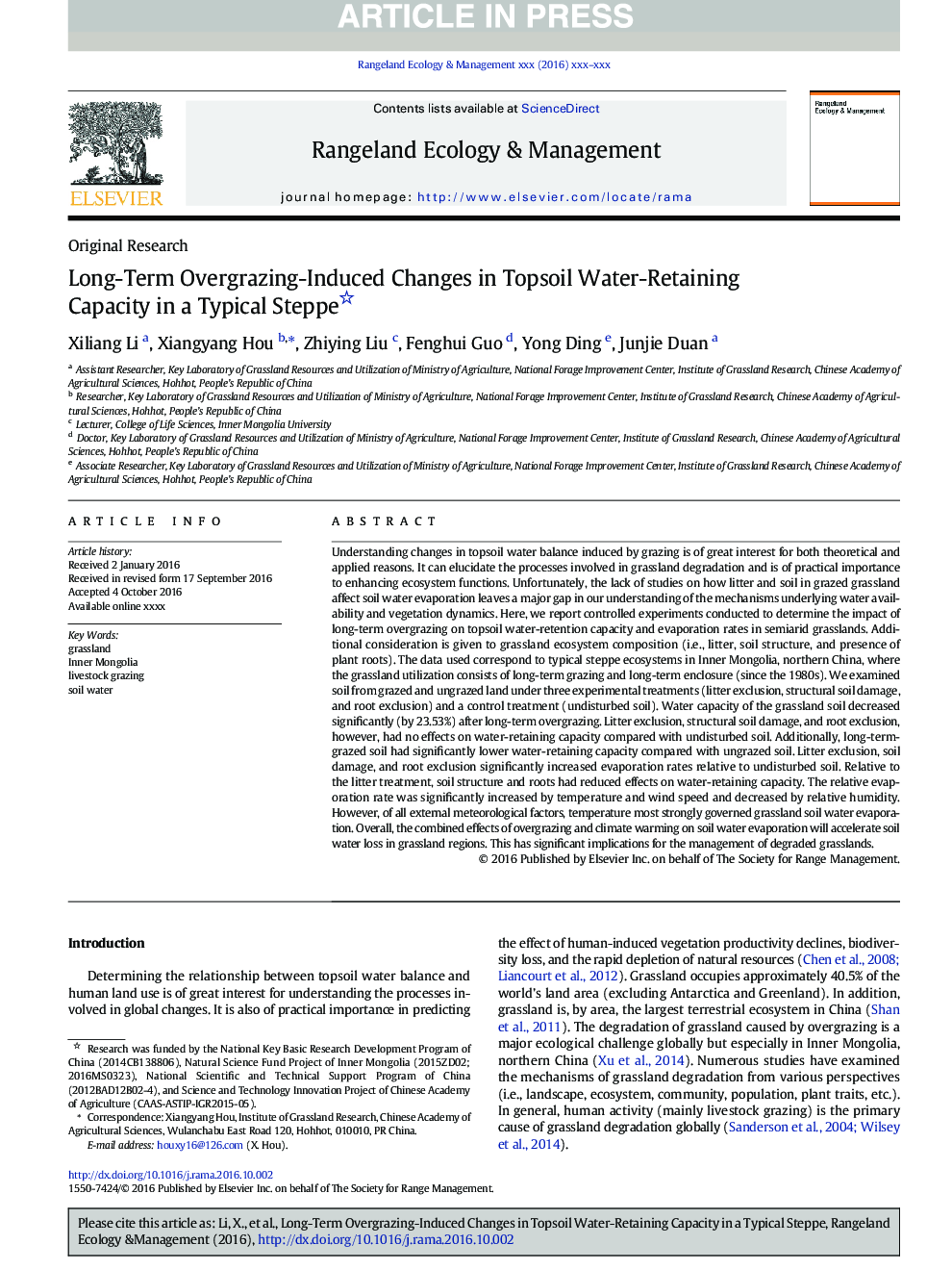| Article ID | Journal | Published Year | Pages | File Type |
|---|---|---|---|---|
| 5745279 | Rangeland Ecology & Management | 2017 | 7 Pages |
Abstract
Understanding changes in topsoil water balance induced by grazing is of great interest for both theoretical and applied reasons. It can elucidate the processes involved in grassland degradation and is of practical importance to enhancing ecosystem functions. Unfortunately, the lack of studies on how litter and soil in grazed grassland affect soil water evaporation leaves a major gap in our understanding of the mechanisms underlying water availability and vegetation dynamics. Here, we report controlled experiments conducted to determine the impact of long-term overgrazing on topsoil water-retention capacity and evaporation rates in semiarid grasslands. Additional consideration is given to grassland ecosystem composition (i.e., litter, soil structure, and presence of plant roots). The data used correspond to typical steppe ecosystems in Inner Mongolia, northern China, where the grassland utilization consists of long-term grazing and long-term enclosure (since the 1980s). We examined soil from grazed and ungrazed land under three experimental treatments (litter exclusion, structural soil damage, and root exclusion) and a control treatment (undisturbed soil). Water capacity of the grassland soil decreased significantly (by 23.53%) after long-term overgrazing. Litter exclusion, structural soil damage, and root exclusion, however, had no effects on water-retaining capacity compared with undisturbed soil. Additionally, long-term-grazed soil had significantly lower water-retaining capacity compared with ungrazed soil. Litter exclusion, soil damage, and root exclusion significantly increased evaporation rates relative to undisturbed soil. Relative to the litter treatment, soil structure and roots had reduced effects on water-retaining capacity. The relative evaporation rate was significantly increased by temperature and wind speed and decreased by relative humidity. However, of all external meteorological factors, temperature most strongly governed grassland soil water evaporation. Overall, the combined effects of overgrazing and climate warming on soil water evaporation will accelerate soil water loss in grassland regions. This has significant implications for the management of degraded grasslands.
Related Topics
Life Sciences
Agricultural and Biological Sciences
Agricultural and Biological Sciences (General)
Authors
Xiliang Li, Xiangyang Hou, Zhiying Liu, Fenghui Guo, Yong Ding, Junjie Duan,
